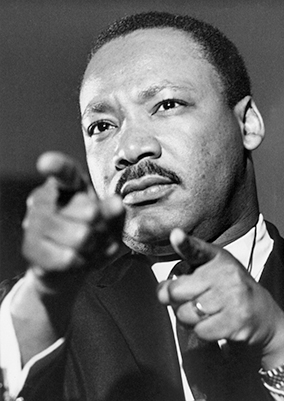FIFTY YEARS LATER
April 16, 2018 by Las Vegas Black Image Magazine
Filed under Feature
It has been a half-century since Martin Luther King Jr. was killed in Memphis. How far have we come since then?
The date was April 4, 1968.
 Dr. Martin Luther King Jr. was gunned down on a balcony outside his second-story room at the Lorraine Motel in Memphis. The civil rights leader was in Tennessee to support a sanitation workers strike, and was on his way to dinner when a bullet struck him in the jaw and severed his spinal cord. King was pronounced dead after his arrival at a Memphis hospital. He was 39 years old.
Dr. Martin Luther King Jr. was gunned down on a balcony outside his second-story room at the Lorraine Motel in Memphis. The civil rights leader was in Tennessee to support a sanitation workers strike, and was on his way to dinner when a bullet struck him in the jaw and severed his spinal cord. King was pronounced dead after his arrival at a Memphis hospital. He was 39 years old.
King’s slaying sparked a wave of unrest across America, and he died while fighting for the poor, after applying the energy and determination of the civil rights movements to causes like wage, education, and housing discrimination. Still, race relations were tense — to say the least — in 1968, a time whe open, unapologetic racial discrimination was still the norm.
According to Peniel E. Joseph, founding director for the Center for the Study of Race and Democracy at the University of Texas at Austin, “Dr. King proved to be more than just the civil rights movement’s most important national political mobilizer. Dr. King’s lasting gift to the nation — what makes 1968 such an important and resonant year for our time — was his unflinching recognition of America’s shortcomings and his persistent belief that the nation could transform itself through collective sacrifice, political struggle and spiritual renewal.”
He added: “In an era before mass incarceration weaponized the criminal justice system, King fully understood the depth and breadth of structural racism and that economic inequality required personal sacrifice and steadfast moral courage. Stalking the world stage like a man on fire, King — who had dined with presidents, European and African royalty, and international dignitaries — perished fighting alongside garbage workers and welfare mothers.”
Fifty years after that extraordinary sacrifice, a larger question emerges: How far have we come? In a divided nation, the answer to that question largely falls along racial lines.
When asked by pollsters, whites tend to see incredible progress in a country where incomes are up, more African-Americans are earning college degrees, and Barack Obama served eight years in the White House. Black Americans are likely to point to lingering issues like police misconduct, economic disparities (black households earn $57.30 for every $100 in income earned by white families; for every $100 in white family wealth, black families hold just $5.04), mass incarceration, and voter suppression to demonstrate that progress is too slow or non-existent.
Had Dr. King survived to the present day, he would be fast approaching 90 years of age — and would almost certainly be standing with the poor and disenfranchised and on the front lines of fighting discrimination and bigotry. He would understand the monumental challenge that the 45th president poses to this country — and would undoubtedly urge us to hold tight to our common humanity and work together, as hard as we can, to bend the moral arc toward justice.





